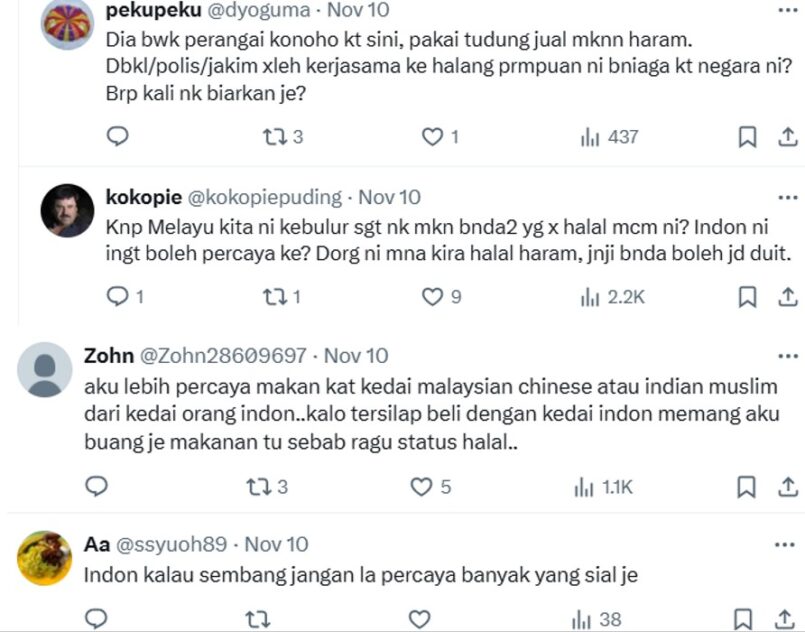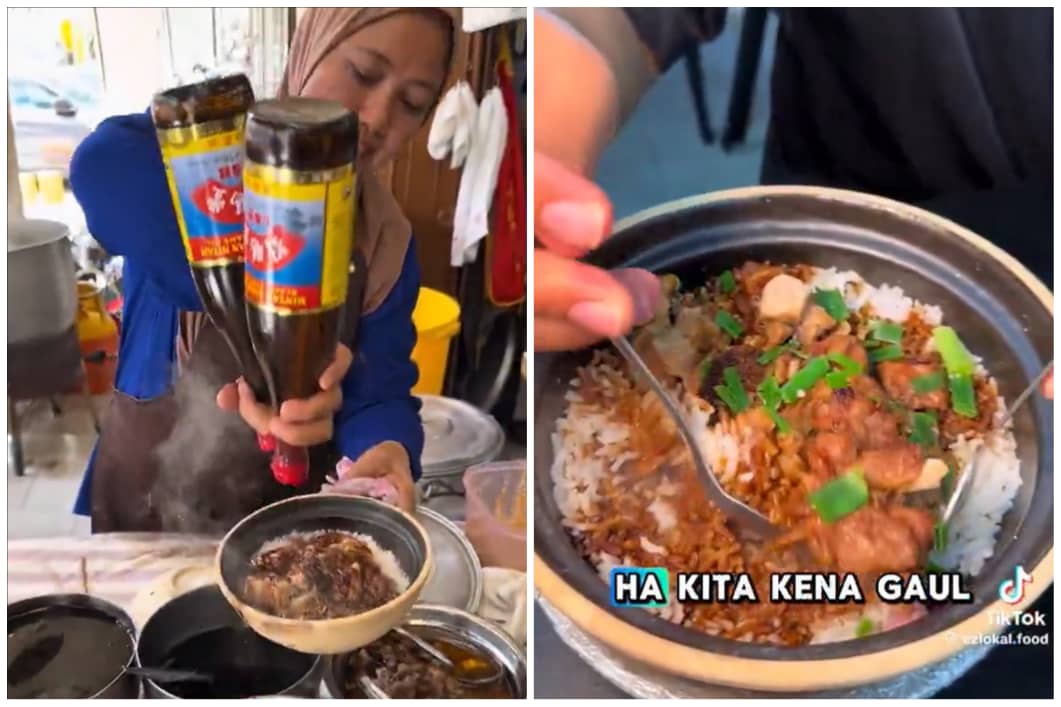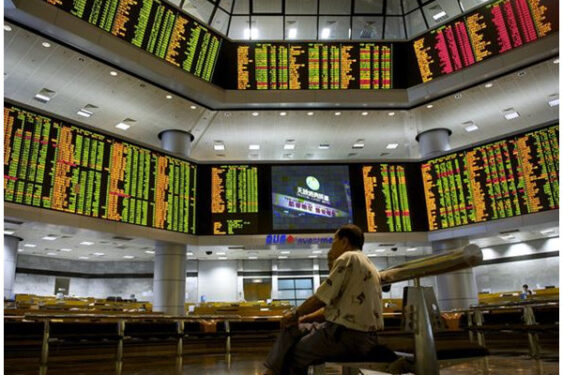A SLIGHTLY more than a minute long video of a Muslim-owned claypot chicken rice shop has resurfaced, highlighting the halal version of the dish which the proprietor claimed the recipe was learnt while working for a Chinese restauranteur over a period of years.
The owner who is purportedly Indonesian had previously been flagged for using cooking wine, obviously non-halal, in the dishes. With the video trending again, netizens are asking if the situation has been remedied.
Nasi claypot konoha yang viral letak rice wine kembali viral balik ! Haritu ada backup kata sijil halal dah ada dlm video ni takda sijil halal pulak 🤣
Yang lagi pelik kenapa minyak bijan tu masih 2 botol sedangkan isi sama ? pic.twitter.com/6W1M3GwtBV
— mhmmdhsm (@mhmmdhsm) November 8, 2024
By her own admission, Restoran Ahmad Mukazim in Bandar Baru Sri Petaling did not possess JAKIM (Malaysian Islamic Development Department) certification.
This has prompted social media influencer mhmmdhsm (@mhmmdhsm) to question how come the owner was so quick to retract her claim of possessing halal certification and more bizarrely, “why there are still two bottles of sesame oil when the contents are the same?”
With the issue still fresh in mind, one commenter opined that some were too quick to forget.

One explained that perhaps the restauranteur could have possibly paid for food reviewers to increase the visibility of the shop. It is not that it has gone viral again but increased traffic has boosted its visibility.

Apparently, one netizen – citing a podcast by a JAKIM halal training provider – revealed that the said restaurant has been subject to JAKIM action and cannot sell food to Muslim customers.

Quite a few simply remarked that one can just abstain from the food if in doubt about its halal status.

More than a few took to spewing racist rantings, conveniently forgetting that many Malay (or local Muslim-owned) restaurants did not have halal certification. Tney further suggested not to trust Indonesian-owned eateries.

With one rightly pointing out that many roadside establishments did not possess halal certification.

While another commenter opined that there was nothing wrong for the restaurateur to serve non-Muslims customers. Muslim diners who are uncertain need not patronise the establishment.

One pointedly said Malays were too quick to pass judgement. If they did not wish to patronise the place, it is their choice but they should refrain from making negative remarks on others.

For sure, this is a sensitive issue. More so if the restaurateur has intimated that the food is halal when that is not the case.
But there is really no excuse for racist tirades. – Nov 18, 2024










